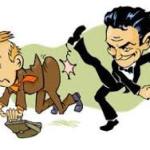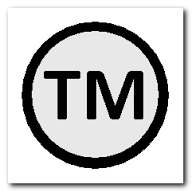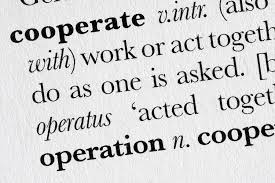 On May 15, 2015, the USPTO Director issued an Order suspending Seattle, Washington-based patent and trademark attorney Nam D. Dao for six months for allowing multiple patent and trademark applications to go abandoned without client knowledge or consent, engaging in the unauthorized practice of law, and failing to cooperate with the Office of Enrollment and Discipline’s ethics investigation. In re Nam D. Dao, Proceeding No. D2015-23 (USPTO Dir. May 15, 2015). The discipline was the result of a settlement pursuant to 37 C.F.R. Section 11.26.
On May 15, 2015, the USPTO Director issued an Order suspending Seattle, Washington-based patent and trademark attorney Nam D. Dao for six months for allowing multiple patent and trademark applications to go abandoned without client knowledge or consent, engaging in the unauthorized practice of law, and failing to cooperate with the Office of Enrollment and Discipline’s ethics investigation. In re Nam D. Dao, Proceeding No. D2015-23 (USPTO Dir. May 15, 2015). The discipline was the result of a settlement pursuant to 37 C.F.R. Section 11.26.
This case involves a virtual potpourri of ethical lapses. According to the USPTO, Mr. Dao mishandled the patent or trademark applications of five separate clients. It is impossible to tell from the PTO’s limited public information when the misconduct occurred or the names of the affected clients.
Abandoned Patent Applications
Mr. Dao neglected multiple patent applications, resulting in waste of client resources and loss of rights.
In one case, Mr. Dao failed to respond to an Office Action in a client’s patent application. The application went abandoned without the client’s knowledge or consent. When the client asked about the status of the application, Mr. Dao advised the client against filing an appeal. Mr. Dao failed to reveal to the client the fact that the client’s patent application was abandoned.
In a second case, Mr. Dao failed to maintain his correct correspondence address with the USPTO. When the Office mailed Mr. Dao a notice to file a corrected patent application for a different client, he never received it. The client’s patent application subsequently became abandoned without the client’s knowledge or consent.
In a third case, Mr. Dao received a notice of allowance and issue fee due for another client’s patent application. He failed to inform the client, however, and the client’s patent application became abandoned without the client’s knowledge or consent.
Botched Trademark Applications
In a fourth case, Mr. Dao represented a client in connection with two intent-to-use trademark applications. The USPTO issued notices of allowances in both cases and advised Mr. Dao that statements of use were due within six months.
Mr. Dao failed to respond to the Office and failed to report the matters to the trademark client. Both applications went abandoned without the client’s knowledge or consent. Mr. Dao failed to report the abandonments to the client.
Unauthorized Practice of Law in Trademark Cases
In the course of representing the trademark client referenced above, Mr. Dao became administratively suspended from the Wisconsin Bar. Although the grounds for the suspension are not explained in the USPTO’s decision, Mr. Dao evidently knew of the suspension while he was practicing trademark law. Because Mr. Dao was only a member of the USPTO and Wisconsin bars, the suspension from Wisconsin meant that Mr. Dao was only authorized to practice patent law before the Office. Mr. Dao failed to withdraw and continued representing the client in the trademark matters despite being unlicensed to do so.
Mr. Dao also engaged in the unauthorized practice of law with respect to a fifth client, whom he represented in connection with filing a trademark application while his Wisconsin bar license was suspended. Mr. Dao eventually took steps to withdraw from that particular representation.
 Failure to Cooperate with the OED
Failure to Cooperate with the OED
The USPTO Rules of Professional Conduct require every practitioner who is investigated by the OED to cooperate. This means, at the very least, providing timely responses to the OED’s requests for information (RFI). It does not mean ignoring RFIs.
Mr. Dao received an RFI, which required a response within 30 days. Mr. Dao failed to request an extension of time or otherwise communicate with the OED. Six months later, Mr. Dao finally replied to the RFI. He apologized but evidently never provided an explanation or reason for his five-month belated response.
The Dao matter provides multiple teaching points for any USPTO practitioner.
First and foremost is the attorney’s duty to timely communicate with clients. Most clients’ number one complaint against their counsel is failure to communicate. Here, Mr. Dao failed to inform his clients of important communications from the USPTO, which led to the clients’ loss of time, money, and intellectual property rights.
The second lesson is to ensure that a change of correspondence address is promptly filed with the USPTO. A practitioner is required to timely update his or her address. The failure to keep the USPTO apprised promptly of any change of address is not a legitimate excuse to an ethics complaint.
The third lesson for practitioners is that a patent bar license does not authorize the practice of trademark or non-patent law. For any such non-patent services, a practitioner must be a member in good standing of the highest court of at least one state.
Fourth, all attorneys who are within the USPTO’s disciplinary jurisdiction have an ethical duty to cooperate in any OED investigation. Mr. Dao’s six-month unexcused “disappearing act” constituted a separate ground for discipline.
Finally, while Mr. Dao unquestionably did many things wrong, he did do some things right. In short, he “owned” his misconduct — at least to the satisfaction of the OED. In particular, he admitted the seriousness of his offenses, expressed genuine remorse to the Office, and made restitution to his clients. And even though he was incommunicado for six months, once he resurfaced Mr. Dao cooperated with the OED’s investigation.
These mitigating circumstances were evidently well received by the OED as evidenced by the fact it agreed to impose only a six-month suspension. Without such mitigating circumstances, it is highly likely Mr. Dao would have faced a much lengthier suspension. Cooperating, telling the truth, expressing remorse, acknowledging the wrongdoing, and making restitution are some of the ways that practitioners can mitigate the level of discipline they might otherwise face for violation of the USPTO’s ethics rules.
